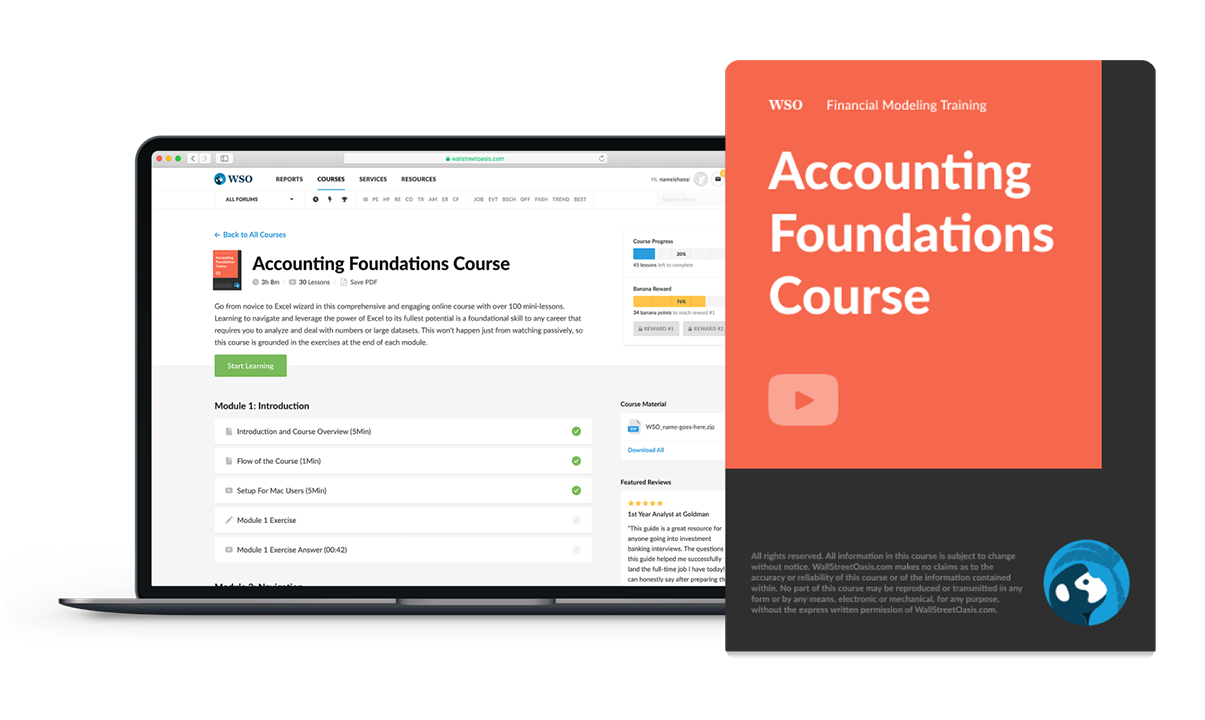
Actuary
What is an Actuary?
An actuary is a professional who analyzes datasets to manage risk by estimating probabilities. Their primary role involves creating reports on their findings and advising clients and management based on their results.

It can be an exciting work that involves a lot of problem-solving that stimulates intellectual juices.
The actuarial sciences is a small but very quickly growing field. This profession has organizations worldwide that cooperate to create internationally recognized accreditation and standards for the profession.
Actuaries usually have the requisite skills and experience to take advantage of the rapid expansion of data sciences.
Professionals in this field require an extensive skill set. Candidates must exhibit strong analytical skills and have a strong command of mathematics, statistics, and risk management.
It is also beneficial to have some knowledge of computer science, which comes in handy when working with vast datasets and statistical models. In addition, they should have some understanding of accounting and economics.
They must be adept at problem-solving. Also, presentation skills are good as candidates are often required to present reports to management and clients outlining suggestions to fix problems that they must back up with their data.
Actuaries also typically require specialized knowledge about the industry they work in. In fact, this is highlighted by the fact that to become a Fellow of the Society, a candidate must follow a particular track built to prepare them for a specific industry.
It is clear that this profession requires a wide breadth of knowledge and deep intellect, but it is also one that has great benefits as long as someone is willing to work hard. A job in this field is exceptionally rewarding and is projected to expand considerably in the coming years, with the demand growth in many different industries. They also get paid incredibly well for their work and have an excellent work-life balance with a flexible schedule.

What is an Actuary?
The actuarial sciences is a small but quickly growing field. An actuary is a professional who analyzes risk and the costs associated with risk and uncertainty. They are specifically valuable for insurance companies. However, they are quickly spreading to other industries that require risk assessment and analysis, such as banks and sovereign wealth funds.

Statistics and mathematical probability heavily define the actuarial sciences. The professionals in this field use mathematics to analyze the likelihood that certain events will occur and the cost or benefit of taking action to prevent those events from occurring.
For example, let's assume that a car company has found a minor defect in one of their designs. In this case, the actuary would be required to find how much the mistake is likely to cost them, weighed against how much it would cost to recall the vehicles and fix the defect.
Actuaries usually work with various data sets, including financial statements, census data, medical records, and mortality tables. It is an actuary's job to analyze extensive sets of data and information, do a considerable amount of risk analysis, and then create reports shared with management and some other clients to help them make better decisions.
Between 2020 and 2030, the Bureau of Labor Statistics estimates that actuary positions will grow by 24%, far above-average job growth. This growth would add an estimated 6,800 positions within actuarial sciences. The median pay for actuaries in 2020 was just over $111,000, and U.S. News ranks actuary as the #24 in best-paying jobs. The actuary is a great career path and a field that is expected to quickly expand as there is a growing demand for the skills that actuaries offer.

How to Become an Actuary?
Any candidate looking to enter the field of actuarial sciences needs to be analytical, driven, and intelligent.
A Bachelor's degree in mathematics, statistics, finance or a related field is the typical educational requirement for an actuary. Currently, not many jobs require a Master's degree in this field, although it certainly won't hurt employment prospects.
In addition to education credentials, it is often helpful for actuaries to have some knowledge of computer science. For example, actuaries are expected to build complex statistical models and work with large datasets in many cases.
While not all employers look for it, understanding a programming language such as SQL, C++, or Python can be very helpful and may improve the chances of finding a job.

Everything You Need To Master Algo Trading using Python
To Help you Thrive in One of the Most Future Proof Careers on Wall Street.
Actuaries also have access to several relevant certifications that may help make them more competitive candidates in job searches. In fact, most employers require that candidates obtain certification from a relevant organization, which varies based on location.

The Society of Actuaries (SOA) offers several designations, which include Fellow of the Society of Actuaries (FSA), Chartered Enterprise Risk Analyst (CERA), and Associate of the Society of Actuaries (ASA). All of these require the completion of multiple exams along with learning modules and other requirements.
They all require knowledge of economics, accounting, statistics, and risk management. It takes an incredible amount of dedication and hard work to pass these exams and achieve any of these certifications.

Everything You Need To Build Your Accounting Skills
To Help you Thrive in the Most Flexible Job in the World.
The Casualty Actuarial Society (CAS) is another organization that offers certifications. This includes the Fellow of the Casualty Actuarial Society (FCAS) accreditation, which, similarly to other actuarial designations, requires knowledge surrounding statistics, risk management, economics, accounting, and some financial modeling.
The CAS also offers the CERA certification, provided by both the CAS and SOA, along with 12 other organizations that collaborated on the globally recognized certification.
The Joint Board for the Enrollment of Actuaries is a federal organization that administers two exams, which grants the title of Enrolled Actuary to the candidate upon completion of both. This certification is essential because it allows actuaries to perform certain functions, particularly about the management of pension funds.
Actuaries Abroad
There are many different organizations built to promote the field of actuarial sciences and lend support to the profession. In addition, many are involved in certifying potential candidates and helping uphold best practices in the profession.
The International Actuarial Association (IAA) is the home of many actuarial organizations worldwide. Founded in 1895 and reformed in 1998, the IAA is committed to advancing education and knowledge of and about actuaries and keeping the profession in good standing.
It comprises 74 full member associations, which are actuarial organizations based in numerous different countries. Each organization described below is a full member of the IAA and shares its mission and values.

The United States is home to many organizations that cater to the profession. This includes the SOA, the CAS, the Joint Board for the Enrollment of Actuaries, the Conference of Consulting Actuaries, the Caribbean Actuarial Association, and finally, the Asociación Centroamericana de Actuarios (ACEA). Many of these organizations offer at least one attainable designation through examination and completion of other requirements.
The United Kingdom contains only one chartered organization that is dedicated to the development of the actuarial field. This is the Institute and Faculty of Actuaries. It shares values with other actuarial organizations, and its website contains links to information about education, the development of the profession, and how to become an actuary. It also provides membership for those who are able to pass a series of exams and complete other requirements. This membership is a demonstration of skill and knowledge within the profession.
China is home to the China Association of Actuaries, another organization that offers education, creates and seeks to uphold certain professional standards, and provides a number of resources. They also offer exams to become a member of the organization, similar to other international organizations, to offer designation of an actuary's skills and credentials.
The Russian Guild of Actuaries is the Russian organization that catered to this profession. Their mission is also to uphold an ethical and professional standard of conduct for all actuaries. Their website, however, contains far fewer educational resources than some of its peer institutions across the globe. They also offer membership through examination and other criteria as a designation to demonstrate skill.
The Institute of Actuaries of India (IAI) is an organization based in India committed to the vision of developing and promoting professional and ethical conduct among the actuarial profession and craft regulation to ensure these standards. They are also dedicated to making many available resources for all included in their website. The IAI offers membership to those who can pass some exams and complete other criteria.

The Canadian Institute of Actuaries (CIA) was founded in 1965. It is a nonprofit organization made up of over 6,000 professional members eligible to use the designation Fellow of the Canadian Institute of Actuaries (FCIA) after their name upon successful completion of multiple examinations and other criteria required for Fellowship status. This organization is again committed to upholding high codes of conduct and professional excellence within the profession. They also offer numerous educational resources through their websites to help develop hopeful candidates in this field.
There are, of course, many other organizations in various other countries that hold similar values and goals and supply the same functions as the ones described above. While it may not contain every organization, the 74 full members can be found on the IAA website in its full member list.
What Does an Actuary Do?
Actuaries find themselves working with new problems nearly every day, which means that the nature of work is exciting even over long periods. While this is usually true, the work can sometimes start to get monotonous, especially among those who have been in the same role for a long time.
They usually work with various datasets and large amounts of information to statistically model for multiple probabilities. What changes is not the statistical methods but the data being used and what it represents. Actuaries also spend time preparing reports that detail the results of their analyses. Hence, writing is a must-have on top of analytical skills. They also spend time talking with clients and other actuaries to understand the client's goals and needs better.
They are often asked to make recommendations about how to address issues that arise from their analyses. For example, they might be required to recommend how a company should approach changes in interest rates or what type of insurance a company should purchase for its employees. These recommendations are often used by executives who make decisions about investments, policies, or procedures that affect the organization's risk exposure and bottom line.

Most of these projects have a wide range of complexity, with some projects taking only a day and others taking weeks. Actuaries must be capable of working on several projects at a time. Time management and prioritization are significant parts of success in this field. They tend to work long hours on deadline-driven projects during which they may be required to think creatively to solve problems. They also interact with many different groups within an organization; therefore, good communication skills are essential for success in this field.
Also, they must be comfortable working independently and as part of a team.
Some examples of the work they do include:
- Designing a retirement plan based on projected earnings.
- Analyzing data collected by insurance companies to determine premiums that accurately reflect risks involved in insuring people or businesses.
- Calculating the probability of certain events happening, such as death or disability over time, and using that information to calculate pension benefits.
- Estimating future costs of healthcare policies based on projected medical expenses for specific diseases or conditions such as cancer or stroke.
- Determining how much life insurance should be purchased for an employee who is planning a marriage or has just had a baby.
The hard work and substantial skillset that actuaries must possess are amply rewarded.
While professionals in this fieldwork somewhat long hours, with a typical workweek of around 50 hours, it usually comes with a fairly flexible schedule, excellent job security, promising opportunities, and great pay.
The median salary for actuaries in 2020 was just over $111,000. So it is no wonder that this profession is considered in high regard.

A Day in the Life of an Actuary
Every day in life is different. The responsibilities that an actuary deals with vary from day to day. The problems and datasets encountered also depend on the industry the actuary works in and their particular position.
Below is a description of a typical day an actuary may have that reflects how time is allocated in this role.
8:00 AM - This is usually when the office day starts. Get comfortable in the office and drink some coffee. More importantly, check emails and voicemail messages and review the work from the previous day.
8:30 AM - After getting everything in order, it's time to really put your head down and get to work. Usually, you will have multiple projects open simultaneously and may switch between them as you work.
10:00 AM - Typically, a small meeting with the team is scheduled to go over projects and various information. These meetings may discuss long-term projects, client demands, or any number of important team information.
11:00 AM - Continue working on a project. At this point, it may be helpful to switch projects to stay focused and to make sure not to prioritize some tasks too heavily over others.
12:30 PM - Take a half-hour for lunch. You've earned it!
1:00 PM - This may be time for some meetings. This could include meetings with clients, meeting with the team, or meetings with management. After analyzing the data and creating reports, it is necessary to present them to management or other clients.

4:30 PM - After sitting through meetings, it may be a good idea to take a quick mental check of how much progress is made on all the projects getting worked on. Organize ideas. Check emails. Make sure everything is organized to get back to work.
5:00 PM - Get back to work. Perhaps it's time to go back to the report that was that morning's work, or maybe there's another project that deserves attention. Analyze whatever data needs to be analyzed.
6:00 PM - This is about it. Usually, the workday ends around this time, and you can go back home and kick your feet up for the day.
While this is how an actuary may allocate their time across projects and various other commitments, it is essential to note that jobs in this field may be somewhat flexible and accommodative. This means there may be work to do on the weekends. However, it may be up to the candidate whether they finish their projects on Friday or take work home.

Everything You Need To Master Algo Trading using Python
To Help you Thrive in One of the Most Future Proof Careers on Wall Street.
Additional Resources
WSO is a leading provider of financial modeling courses for finance professionals. To help you advance your career, check out the additional resources below:
.jpg?itok=DxumzaOP)

or Want to Sign up with your social account?